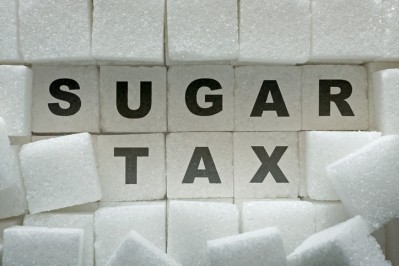BALANCING HEALTH AND INDULGENCE IN CONFECTIONERY
Colombia’s sugar reduction tax targets confectionery

In a paper, Global Sugar Taxes: Tipping the Scales Towards Healthier Choices, published by the Howtian Group, a global leader in natural sweeteners, nutritional and functional ingredients, it has revealed that countries like Colombia and the United States have championed these taxes, which not only raise public awareness about sugar content but also contribute to improving public health.
Colombia's bold step
In a recent development, the Colombian government announced the implementation of a 10% tax on sugary drinks and junk foods, effective November 1st, 2023. This tax will escalate to 15% this year and 20% in 2025. The tax applies to products including candies, chocolate, carbonated drinks, coffee, fruit juices, and energy drinks; the tax amount varies based on ingredient content, with different levels corresponding to different tax standards.
United States Sugar Tax trend
Approximately 30 states in the United States have enacted laws to tax sugar-sweetened beverages (SSBs). Berkeley, California, was the first city to impose such a tax in 2015, followed by several others, including San Francisco, Oakland, Colorado, Seattle, and Philadelphia.
Studies have shown that these taxes effectively reduce SSB consumption. Further research from the University of Illinois Chicago suggests that Seattle's SSB tax, implemented in 2018, has successfully reduced sales from sugar-taxed beverages by 23%, highlighting the sustainability of such policies.
According to a Nielsen data comparison on the sugar tax in Philadelphia, a study reported: “There is a significant dose–response relationship between the size of the tax and the amount of impact. A broad-based tax of 1 cent per ounce or more is associated with greater degrees of purchasing reduction in the beverage categories targeted by public health advocates, i.e., soft drinks and fruit drinks, while at the same time incentivizing the purchase of bottled water as a substitute.”
The study also found that the tax had few income-related effects detected – therefore validating that sugar taxes reduce the sugar consumption of the American people as a whole rather than just those unable to afford the increased prices.
Beverage industry's response
Anticipating sugar taxes, beverage companies worldwide have been reformulating their products to reduce sugar content. This shift towards "sugar reduction" and "sugar-free" options is driven by the consensus that reducing sugar intake is synonymous with health — in addition to following the World Health Organization (WHO) recommendation that added sugar be less than 10% of daily total caloric intake. Additional health benefits may be attained if further reduced to 5%.
Natural sweeteners
Natural sweeteners and sugar substitutes have gained popularity in the quest to reduce sugar, according to Howtian, with stevia leading the charge. Natural sweeteners like monk fruit extract and allulose also have their share of the market. Still, stevia is popular due to its natural origin and perceived health benefits. Derived from the stevia rebaudiana plant leaves, stevia offers a zero-calorie sweetness that is up to 300 times sweeter than sugar. As such, it has been gaining traction among consumers seeking healthier lifestyles and among manufacturers looking for clean-label ingredients.
Today's consumers are more informed and health-conscious, seeking products that offer taste and nutritional benefits. By proactively embracing sugar alternatives and reformulation, the paper claimed that companies are not just adhering to regulations but are also positioning themselves at the forefront of a consumer-driven shift.
“And with sugar taxes here to stay, a successful approach to addressing such regulation isn’t so much about playing defence as it is about embracing this sweet revolution and thriving in a future where health and taste go hand in hand,” according to the paper’s authors.




